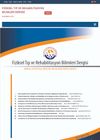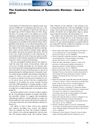 February 2024 in “BIOspektrum”
February 2024 in “BIOspektrum” Genetic research may lead to better ways to predict and treat male-pattern hair loss.
 65 citations,
April 2002 in “Journal of Alternative and Complementary Medicine”
65 citations,
April 2002 in “Journal of Alternative and Complementary Medicine” Plant extracts effectively reduce hair loss and increase growth, offering a safe alternative treatment.
 68 citations,
April 2002 in “Journal of Alternative and Complementary Medicine”
68 citations,
April 2002 in “Journal of Alternative and Complementary Medicine” Natural 5AR inhibitors effectively improve mild to moderate hair loss in men.
 August 2012 in “Pharmaceutical Medicine”
August 2012 in “Pharmaceutical Medicine” The document concludes that various medications and treatments can have significant, sometimes adverse, effects on health outcomes.
 August 2023 in “Journal of the American Academy of Dermatology”
August 2023 in “Journal of the American Academy of Dermatology” A scalp biopsy is essential for accurately identifying different types of hair loss.
 January 2023 in “Fiziksel tıp ve rehabilitasyon bilimleri dergisi”
January 2023 in “Fiziksel tıp ve rehabilitasyon bilimleri dergisi” SLE should be considered when investigating the cause of a stroke to prevent more strokes.
 September 2024 in “Health of Man”
September 2024 in “Health of Man” Low-dose dutasteride effectively and safely promotes hair growth in men with androgenetic alopecia.
12 citations,
January 2021 in “Springer eBooks”  October 2023 in “Dermatology practical & conceptual”
October 2023 in “Dermatology practical & conceptual” Finger length ratios might help predict common hair loss.

Many men with androgenic alopecia also have dyslipidemia.

Many women with PCOS in Saudi Arabia suffer from depression and anxiety.
 October 2023 in “The Journal of clinical endocrinology and metabolism/Journal of clinical endocrinology & metabolism”
October 2023 in “The Journal of clinical endocrinology and metabolism/Journal of clinical endocrinology & metabolism” Hyperandrogenism increases heart disease risk in premenopausal women, but this risk is linked to obesity in postmenopausal women.
 5 citations,
October 2021 in “Dermatologic Surgery”
5 citations,
October 2021 in “Dermatologic Surgery” Platelet-rich plasma (PRP) can significantly improve melasma, a skin pigmentation disorder, but may not add benefits when used with certain other treatments.
 August 2012 in “Journal of Evidence-Based Medicine”
August 2012 in “Journal of Evidence-Based Medicine” The issue included new and updated reviews on various health interventions, with significant findings on weight loss, psychological therapies, cancer treatment, and more.
 3 citations,
November 2022 in “European Journal of Human Genetics”
3 citations,
November 2022 in “European Journal of Human Genetics” New models predict male pattern baldness better than old ones but still need improvement.
 9 citations,
February 2020 in “International Journal of Endocrinology”
9 citations,
February 2020 in “International Journal of Endocrinology” Some men with early hair loss may have a male version of PCOS, affecting hormones and increasing health risks.
 January 2023 in “Springer eBooks”
January 2023 in “Springer eBooks” Using one's own blood platelets and fat can improve facial and hair appearance without surgery.
 July 2012 in “Faculty Opinions – Post-Publication Peer Review of the Biomedical Literature”
July 2012 in “Faculty Opinions – Post-Publication Peer Review of the Biomedical Literature” New treatment with Wnt proteins and growth factors safely increases hair thickness.
 883 citations,
August 2016 in “Nature Reviews Disease Primers”
883 citations,
August 2016 in “Nature Reviews Disease Primers” Polycystic Ovary Syndrome (PCOS) is a common condition in women that can cause metabolic, reproductive, and psychological issues, and requires lifestyle changes and medication for management.
 September 2023 in “Medical and Clinical Case Reports”
September 2023 in “Medical and Clinical Case Reports” People with Alopecia Areata often have thyroid problems like Hashimoto thyroiditis and hypothyroidism.
 6 citations,
January 2022 in “Journal of Investigative Dermatology”
6 citations,
January 2022 in “Journal of Investigative Dermatology” Male pattern baldness is linked to higher levels of a certain receptor in the scalp, which leads to the shrinking of blood vessels and hair loss. Early treatment targeting this receptor could be more effective.
7 citations,
April 2021 in “Journal of Clinical Psychopharmacology” Finasteride may increase the risk of depression, anxiety, and suicidal thoughts.
 14 citations,
January 2017 in “Skin appendage disorders”
14 citations,
January 2017 in “Skin appendage disorders” Simvastatin/ezetimibe did not effectively treat severe alopecia areata and caused side effects in some patients.
1 citations,
April 2022 in “Journal of Cosmetic Dermatology” Androgenetic alopecia causes significant psychological distress, especially in women, and requires both medical and psychological support.
 21 citations,
July 2019 in “Cardiovascular Research”
21 citations,
July 2019 in “Cardiovascular Research” High levels of male hormones in pregnant mice cause heart enlargement and poor heart function in their female babies.
 1 citations,
March 2022 in “PubMed”
1 citations,
March 2022 in “PubMed” Platelet-rich plasma can help treat scarring hair loss caused by Discoid Lupus Erythematosus.
 April 2022 in “International journal of respiratory and pulmonary medicine”
April 2022 in “International journal of respiratory and pulmonary medicine” People with lower levels of free testosterone tend to have worse COVID-19 outcomes.
 44 citations,
June 2012 in “Endocrinology”
44 citations,
June 2012 in “Endocrinology” High levels of androgens during early development may cause PCOS-like symptoms.
 2 citations,
October 2021 in “Clinical Epidemiology and Global Health”
2 citations,
October 2021 in “Clinical Epidemiology and Global Health” High uric acid levels are more common in PCOS patients, especially those with androgenic PCOS, and are linked with increased cardiovascular risk and other metabolic issues.
 February 2024 in “Archives of Dermatological Research”
February 2024 in “Archives of Dermatological Research” Most patients know about minoxidil for hair loss, but concerns about its use and effectiveness affect their decision to use it.



























